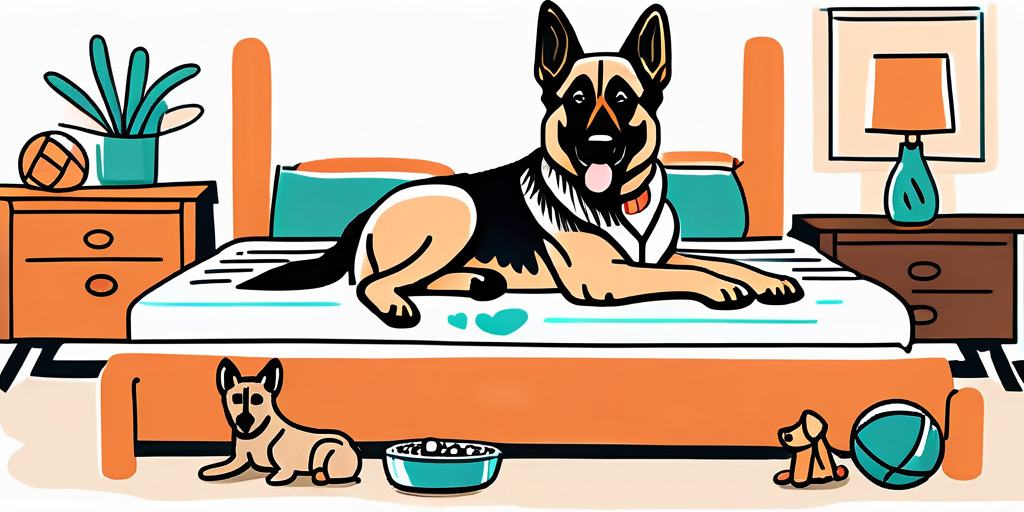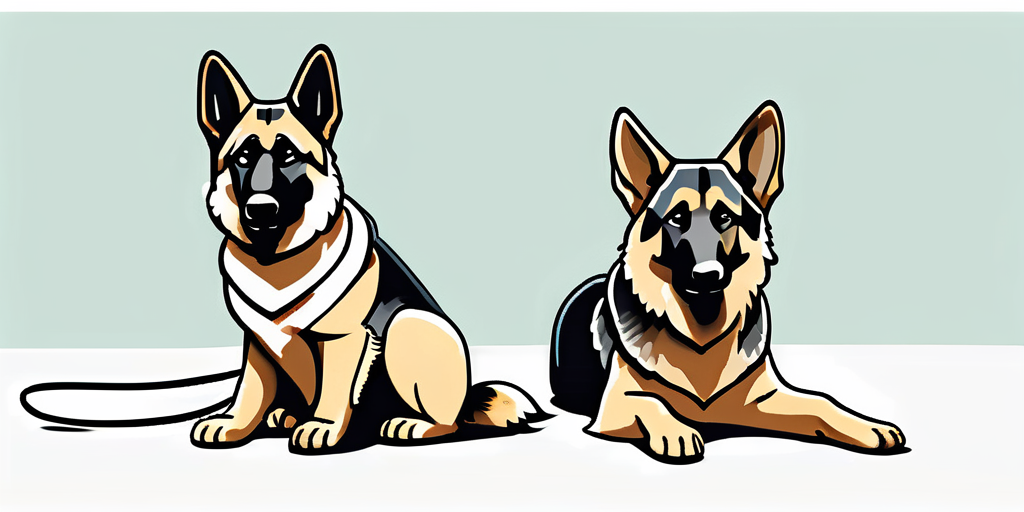Training a German Shepherd puppy to use the potty can be a daunting task, but with patience, consistency, and the right approach, it can be accomplished successfully. This guide will provide you with a comprehensive approach to potty training your German Shepherd puppy, ensuring a smooth and rewarding experience for both you and your new furry friend.
Understanding Your German Shepherd Puppy’s Needs
Before we delve into the steps of potty training, it’s crucial to understand the unique needs of a German Shepherd puppy. These intelligent and energetic dogs have specific requirements that can influence their potty training process.

German Shepherd puppies typically have smaller bladders and faster metabolisms, which means they need to relieve themselves frequently. Understanding this can help you establish a regular potty schedule for your puppy.
Feeding Schedule
Feeding your German Shepherd puppy at consistent times each day will help regulate their bowel movements. This predictability makes it easier for you to anticipate when your puppy will need to go outside.
As a general rule, puppies usually need to go potty within 15-30 minutes after eating. Therefore, scheduling feeding times around your availability to take them outside can be beneficial.
Recognizing Signs
German Shepherd puppies often show signs when they need to go potty. These can include sniffing around, circling, whining, or going towards the door. Recognizing these signs can help prevent accidents and make the training process smoother.
Remember, every puppy is unique. Your German Shepherd may show different signs, so it’s essential to observe and learn their specific behaviors.
Steps to Potty Train Your German Shepherd Puppy
Now that you understand your German Shepherd puppy’s needs, let’s dive into the step-by-step process of potty training. Remember, consistency and patience are key to successful training.
- Establish a Routine: Puppies thrive on routine. Set specific times for meals, play, and potty breaks. This will help your puppy understand when it’s time to eat, play, and go potty.
- Take Your Puppy Out Frequently: Due to their small bladders, puppies need to go potty often. Take your puppy outside every 1-2 hours, as well as after meals, naps, and playtime.
- Choose a Specific Potty Spot: Consistently taking your puppy to the same spot will help them understand where they should do their business. The scent will also encourage them to go potty.
- Use a Cue Word or Phrase: When your puppy is about to go potty, use a specific word or phrase, like “go potty.” This will help them associate the word with the action, making future potty breaks easier.
- Reward Your Puppy: Immediately after your puppy goes potty in the correct spot, reward them with praise, a treat, or a short play session. This will reinforce the positive behavior.
- Handle Accidents Calmly: Accidents will happen. When they do, clean up calmly without scolding your puppy. Scolding can create fear and confusion, which can hinder the training process.
- Gradually Extend the Time Between Potty Breaks: As your puppy grows and gains bladder control, slowly increase the time between potty breaks. This will help them learn to hold it in for longer periods.
Common Challenges and Solutions
Potty training a German Shepherd puppy is not without its challenges. However, understanding these challenges and knowing how to address them can make the process easier.
Accidents Inside the House
Accidents are a normal part of potty training. It’s important to remember that puppies are still learning and mistakes are part of the process.
When an accident happens, clean it up thoroughly to remove any scent. This will discourage your puppy from using the same spot in the future. If accidents are frequent, it may be a sign that you need to take your puppy out more often.
Refusal to Go Potty Outside
Sometimes, a puppy may refuse to go potty outside, especially in bad weather. In this case, patience is key. Stay outside with your puppy until they go potty, then reward them immediately to reinforce the behavior.
If your puppy consistently refuses to go potty outside, it may be worth consulting with a professional trainer or your vet to rule out any potential health issues or behavioral concerns.
Conclusion
Potty training a German Shepherd puppy requires patience, consistency, and understanding. By following the steps outlined in this guide, recognizing your puppy’s unique needs, and addressing common challenges, you can successfully potty train your German Shepherd puppy.

Remember, every puppy is unique and may progress at their own pace. Celebrate small victories and stay positive. With time and consistent effort, your puppy will eventually master this essential skill.
Join the BreedRead Community
Now that you’re on your way to successfully potty training your German Shepherd puppy, why not continue to expand your knowledge with BreedRead.com? As your ultimate online resource for all things dog breeds, we provide invaluable insights that will help you through every stage of your puppy’s growth. Subscribe to our free newsletter today and gain access to expert care tips, training methods, and health care strategies tailored to your German Shepherd’s needs. Let BreedRead.com guide you to a happier, healthier life with your loyal companion.

